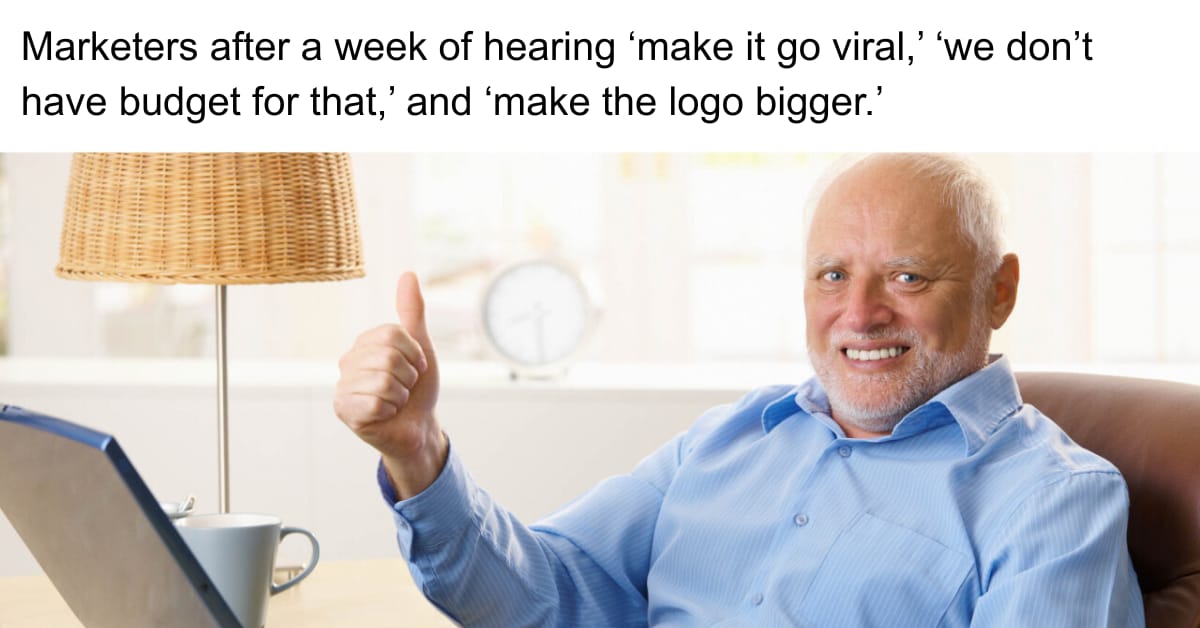- Enterprise AI Daily
- Posts
- OpenAI Goes Full Social: Sora 2, Jobs, and the “Everything App” Play
OpenAI Goes Full Social: Sora 2, Jobs, and the “Everything App” Play
How far can they stretch before Microsoft snaps?

Welcome to October, where OpenAI is apparently speedrunning its transformation from AI research lab to "what industry can we disrupt next?" The company just announced Sora 2 alongside a standalone TikTok-style social app, coming hot on the heels of their LinkedIn competitor announcement from early September.
Translation: OpenAI is sprinting into consumer land, professional land, and enterprise land at the same time. What won’t they do? Meanwhile, Microsoft is probably updating their "it's complicated" relationship status as we speak. Let's unpack this tech mess and what it means for your enterprise stack.
The best marketing ideas come from marketers who live it.
That’s what this newsletter delivers.
The Marketing Millennials is a look inside what’s working right now for other marketers. No theory. No fluff. Just real insights and ideas you can actually use—from marketers who’ve been there, done that, and are sharing the playbook.
Every newsletter is written by Daniel Murray, a marketer obsessed with what goes into great marketing. Expect fresh takes, hot topics, and the kind of stuff you’ll want to steal for your next campaign.
Because marketing shouldn’t feel like guesswork. And you shouldn’t have to dig for the good stuff.
OpenAI's Identity Crisis: From Foundation Models to Everything Else
Here's yet another plot twist nobody saw coming: OpenAI is launching a TikTok-style social app powered by its new Sora 2 video generation model, featuring a vertical video feed with swipe-to-scroll navigation. The catch: Every video on the platform is AI-generated, with no option to upload your own content, and clips are limited to 10 seconds or shorter.

Image: Sora 2
This comes exactly three weeks after OpenAI announced it's building a job platform to compete with LinkedIn, which, in case you forgot, is owned by Microsoft. You know, the company that has poured $13 billion into OpenAI and remains its largest investor. We covered this brewing tension in our September 10 briefing when Microsoft started cozying up to Anthropic, clearly reading the room.
Let's talk about what this means for enterprise leaders navigating the AI vendor landscape:
The platform play is accelerating. OpenAI isn't content being the engine under everyone else's hood. They're building consumer-facing products, job platforms, and now social media apps. This shift from infrastructure provider to platform competitor changes the calculus for any enterprise that's deeply integrated with OpenAI's APIs. If you're building on GPT-5 while OpenAI builds products that compete with your customers, that's a conversation worth having with your board.
The Sora 2 app includes identity verification features that allow users to have AI-generated videos include their likeness, with notifications sent whenever someone else uses that verified likeness. While this sounds like a privacy safeguard, it's actually a clever data moat. Every interaction, every remix, every trend becomes training data that feeds back into Sora 2 and future models. OpenAI is building what analysts call a "community moat," making it stickier and harder for users to leave once they've built a following.
The copyright approach is aggressive. OpenAI will require rights holders to proactively opt out of having their content used for training or generation. This places the burden squarely on creators and is likely to attract regulatory scrutiny, especially under frameworks like the EU's AI Act. For enterprise legal teams, this is a reminder to audit your vendor agreements. What's their stance on your proprietary data? Are you in an opt-in or opt-out arrangement?
The Sora 2 launch signals something big: we're entering an era where the line between synthetic and authentic content becomes functionally meaningless. An entire social platform of AI-generated humans, verifiable likenesses that can be remixed by strangers, content that exists purely because an algorithm willed it into being. This isn't just OpenAI testing a product, it's a preview of how generative AI will reshape digital identity, content creation, and what "real" even means online.
For enterprise leaders, this creates a dual challenge.
First, you're watching your AI vendor become a horizontal platform player that could compete with your own products or customer base.
Second, you're witnessing the normalization of synthetic content at scale, which has implications for everything from marketing authenticity to fraud detection to customer trust.
The strategic takeaway for CTOs and procurement teams: Multi-model architecture is both smart and necessary. Vendor concentration risk is real when your AI partner is also building products that could compete with your business. But equally important is preparing for a world where AI-generated content is the default, not the exception. That means updating your content verification policies, training your teams to spot synthetic media, and rethinking what "authentic" means in your customer interactions.
Diversify your foundation model dependencies now, before you're locked into a platform that's moving in directions you didn't anticipate. And start asking harder questions about how AI-generated content will impact your brand, your customers, and your legal liability. Because if Sora 2 succeeds, every platform will have a version of this within 18 months.

Enterprise AI Daily Briefing // Created with Midjourney
AI News
Cisco unveils AI agents for collaboration
Cisco rolled out workplace AI copilots aimed at meeting transcription, task follow-up, and hybrid collaboration. Think Teams or Slack, but with AI agents built in.
Read more →UiPath expands into agentic orchestration
UiPath upgraded its platform with new capabilities for agentic automation and orchestration, signaling a push to own the “AI worker” layer for enterprise workflows.
Read more →CoreWeave inks $1.4B Meta deal
CoreWeave locked in a multi-year, $1.4 billion GPU lease agreement with Meta, further proof that compute demand is still white-hot and hyperscalers aren’t cooling their AI buildout.
Read more →
CTV ads made easy: Black Friday edition
As with any digital ad campaign, the important thing is to reach streaming audiences who will convert. Roku’s self-service Ads Manager stands ready with powerful segmentation and targeting — plus creative upscaling tools that transform existing assets into CTV-ready video ads. Bonus: we’re gifting you $5K in ad credits when you spend your first $5K on Roku Ads Manager. Just sign up and use code GET5K. Terms apply.
TL;DR:
OpenAI launched Sora 2 as a TikTok-like app, making a land grab for consumer engagement.
This follows their LinkedIn rival, putting more pressure on Microsoft just weeks after both issued a carefully worded détente.
Enterprises should expect more fragmentation of platforms and prepare for potential strain in the Azure-OpenAI relationship.
Cisco, UiPath, and CoreWeave all made big enterprise AI moves this week, showing the arms race spans collaboration, automation, and compute.
Final Thought
The OpenAI-Microsoft dance is starting to look less like a waltz and more like a mosh pit. Enterprises watching from the sidelines should think carefully about where to place their infrastructure and ecosystem bets.
Stay sharp,
Cat Valverde
Founder, Enterprise AI Solutions
Navigating Tomorrow’s Tech Landscape Together


